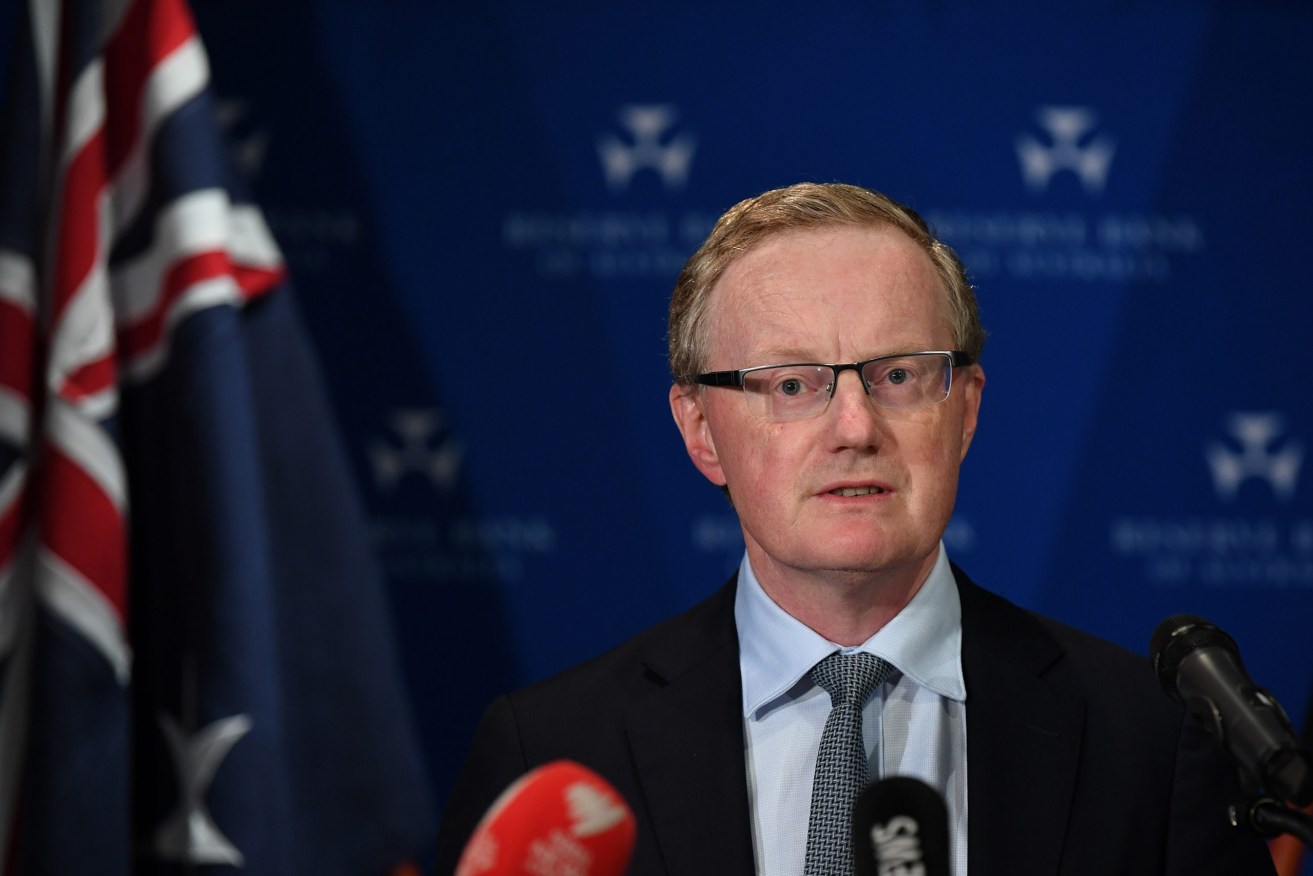Reserve Bank boss expects ‘job shedding’ with end of JobKeeper
Reserve Bank governor Philip Lowe expects employment growth will slow and some “job shedding” when the JobKeeper wage subsidy ends in March.

Reserve Bank of Australia Governor Philip Lowe. (Photo: AAP Image/Joel Carrett)
But the governor is not disappointed by the Morrison Government’s stance, despite the central bank’s efforts to get the rate of unemployment down as quickly as possible through its low interest rate strategy.
“The government made it very clear it was a temporary program,” Lowe told the National Press Club in Canberra.
“When JobKeeper ends there will be some job shedding. That’s going to take place in the context of an economy that is otherwise recovering.”
His first public address of the year came the day after the central bank board left its key interest rates at a record low 0.1 per cent for another month.
The central bank also announced it will extend its bond-buying program beyond mid-April, when it will start purchasing a further $100 billion in federal and state government bonds.
This quantitative easing program aims to keep long-term market interest rates, and in turn borrowing rates, low.
“With three months experience now, it is clear that the bond purchase program has helped to lower interest rates and has meant that the Australian dollar is lower than it otherwise would have been,” Lowe said.
“So, it has worked.”
But former Labor prime minister and treasurer Paul Keating, a major critic of the operations of the central bank, was unimpressed, saying the Reserve Bank was again acting too late.
“By persisting with its mantra of ‘fight inflation first’ over the last eight years, when inflation was already dead, the Reserve Bank has run a tighter monetary policy than major overseas central banks,” Keating said in a statement.
He said this was inflicting on Australia an uncompetitive exchange rate, and with it a weakened labour market.
Lowe said Australia’s economic downturn had not been as deep as initially feared and the bounce-back had been earlier and stronger than expected.
He said there was quite a way to go before the central bank’s goals of full employment and inflation being consistent with the two to three per cent target were reached.
“As was the case in 2020, much depends upon the path of the pandemic,” he said.
“The development of vaccines in record time is clearly good news. It has reduced one of the big uncertainties and could provide the foundation for a vigorous and sustainable recovery in the global economy.”
The central bank expects the unemployment rate – currently at 6.6 per cent – to continue to decline, reaching six per cent by the end of this year and about 5.25 per cent by mid-2023.
But wages growth and inflation are forecast to remain subdued.
Lowe reiterated the cash rate will be maintained at 0.1 per cent for as long as is necessary and the board had no appetite to go into negative territory with interest rates.
The board will want to see inflation sustainably in the target band, which will require a tighter labour market and stronger wages growth than is currently forecast.
“We do not expect it to be before 2024, and it is possible that it will be later than this,” Dr Lowe said.
“I think there is a high degree of confidence in that outcome.”
On the Jobseeker program, Lowe repeated his support for a permanent increase in the benefit.
JobSeeker coronavirus supplements worth $150 a fortnight are set to expire on March 31.
Unless the Morrison government intervenes, the JobSeeker rate will then fall back to as little as $40 a day.
Lowe said the central bank had not modelled the economic consequence of stripping away pandemic payments.
“But I think there is a wide consensus in the community that the previous level (of JobSeeker payments) should be increased permanently,” he said.
“I’ve said on previous occasions that I would join that consensus.”
He said cutting the JobSeeker rate would have some effect on spending but it was mostly an issue of fairness.
“As a society, what level of support do we want to provide people who don’t have a job?” he said.
“Different people will legitimately have different views about the level of support. My own view is that some increase is justifiable.”












